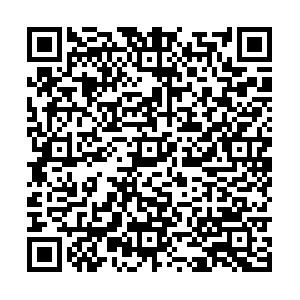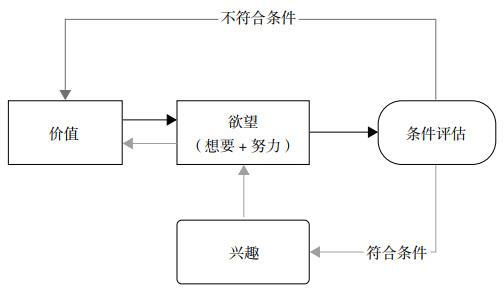Discussion on the Educational Implication of Dewey's Theory of Valuation
-
摘要: 目前,循证导向的评价成为教育评价活动的主要形式。各种建立在客观数据上对教育评价的讨论超过了对教育目的、教育意义的讨论。这不仅窄化了人们对教育的想象,而且存在导致教育手段与目的颠倒、评价标准与教育价值体系脱离等风险。杜威的评价理论为还原教育评价原有的检验、批判、创造等作用提供了依据。评价理论是杜威价值论的核心部分,它打破了事实与价值、目的与手段、理智与情感的二元对立。杜威以行动为核心,强调行动者与周围环境因素的交互作用,并将实验方法融入到价值评价体系中。这不仅是对以往反价值理论、超验的价值理论以及二元论的修正,也为我们审视当今教育评价中的问题提供了思路。教育评价中要注重评价与价值的关联、与经验的关联;澄清评价与欲望、兴趣的关系,评价既非单纯的情感刺激又非纯粹的理性指导;教育评价中也要强调教育手段目的的相互辩证,保障教育主体经验的连续性。Abstract: Nowadays, evidence-based evaluation has become the main form of educational evaluation. The discussions based on objective data have to a certain extent surpassed the exploration of the purpose and significance of education. This will not only narrow people's imagination of education, but also lead to the problems such as reversal of educational means and ends, and the disconnection between evaluation standards and the value system in education. To restore the original role of educational evaluation as a means of verification, criticism, and creation, Dewey's valuation theory, which is the core part of his value theory, will be a possible approach that can be drawn upon. It breaks the binary between fact and value, purpose and means, and reason and emotion, taking "action" as the core and emphasizes the interaction with environmental factors and integrating experimental methods into Dewey's value system. Dewey's theory of experimental empirical value is a subversion of anti-value theory, transcendental value theory and dualism, which provides a new perspective for examining problems in educational evaluation. It reveals that, 1) we should pay attentions on the relevance of value, students' experience and educational evaluation; 2)We should clarify the relationship between valuation and desiring and interest, which are neither simply emotional stimulus nor pure rational guidance; and 3) We ought to make it clear of the causality of educational means and aims, so as to guarantee the consistency of subjects' experience. The clarification of the core concepts in Dewey's evaluation theory may provide us with feasible ideas for solving practical problems in the educational evaluation.
-
Key words:
- Dewey /
- Value /
- Theory of Valuation /
- Experience /
- Act
-
[1] 张善超, 仇国伟. 新时代教育评价改革的困境与化解之道[J]. 大学教育科学, 2022(1): 89-96. [2] 刘磊明. 国际大规模教育评价的逻辑反思[J]. 教育研究, 2020(1): 75-85. [3] 朱德全, 冯丹. 新时代教育评价改革多元主体的行动逻辑[J]. 现代教育技术, 2024(5): 5-15. [4] 格特·比斯塔. 测量时代的好教育[M]. 张立平, 韩亚菲, 译. 北京: 北京师范大学出版社, 2019: 14, 26. [5] 陶行知. 杀人的会考与创造的考成[J]. 生活教育, 1934(8): 170-171. [6] 高洁. 杜威价值哲学视角下的价值教育新探索[J]. 教育学报, 2014(4): 17-25. [7] 石中英. 杜威的价值理论及其当代教育意义[J]. 教育研究, 2019(12): 36-44. [8] 冯平. 批评之批评: 杜威价值论与伦理学[M]. 上海: 华东师范大学出版社, 2017. [9] MUNCK J, ZIMMERMANN B. Evaluation as Practical Judgement[J]. Human Studies, 2015(1): 113-135. [10] 杜威. 艺术即经验[M]. 高建平, 译. 北京: 商务印书馆, 2017. [11] 杜威. 杜威全集·晚期著作(1925-1953)·第十四卷(1939-1971)[M]. 傅统先, 译. 上海: 华东师范大学出版社, 2013. [12] BOISVERT R D. 杜威的哲学的改造[M]// 王成兵. 当代美国学者看杜威. 北京: 中国社会科学出版社, 2015: 90. [13] ERNST K A. Comparison of John Dewey抯Theory of Valuation and Abraham Maslow's Theory of Value[J]. Educational Theory, 1974(2): 130-141. [14] BLACKBURN S. The Oxford Dictionary of Philosophy[M]. Oxford: Oxford University Press, 2005. [15] CARR D. Practical enquiry, values and the problems of educational theory[J]. Oxford review of education, 1992(03): 241-251. [16] 杜威. 经验与自然[M]. 傅统先, 译. 北京: 商务印书馆, 2015. [17] 盛显容. 试论杜威的评价(价值)理论[J]. 黑河学刊, 2013(9): 17-19. [18] 杜威. 学校与社会·明日之学校[M]. 赵祥麟, 任钟印, 吴志宏, 译. 北京: 人民教育出版社, 2004: 167. [19] PETERS R. 伦理学与教育[M]. 简成熙, 译. 台北: 联经出版社, 2017. [20] 光明日报评论员. 从根本上解决教育评价指挥棒问题[N]. 光明日报, 2018-09-17(1). [21] DEARDEN R F. Theory and Practice in Education[M]. London: Routledge, 1984: 123-137. -





 下载:
下载:

